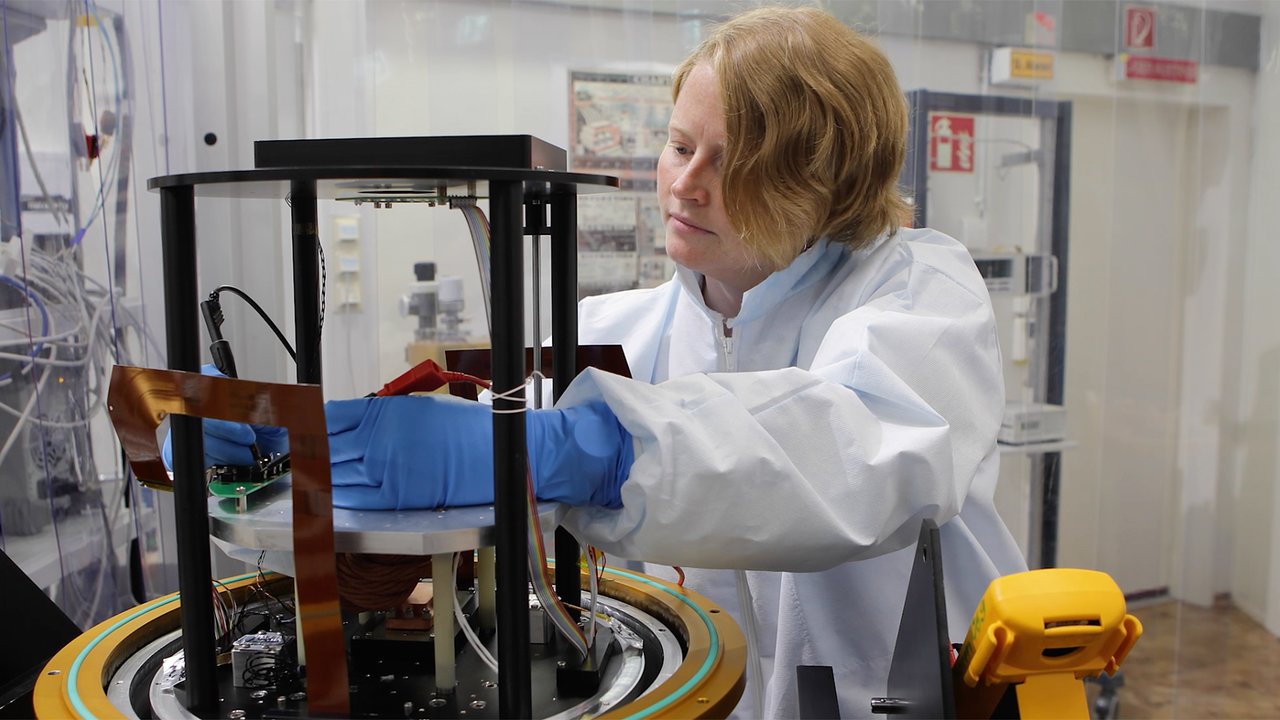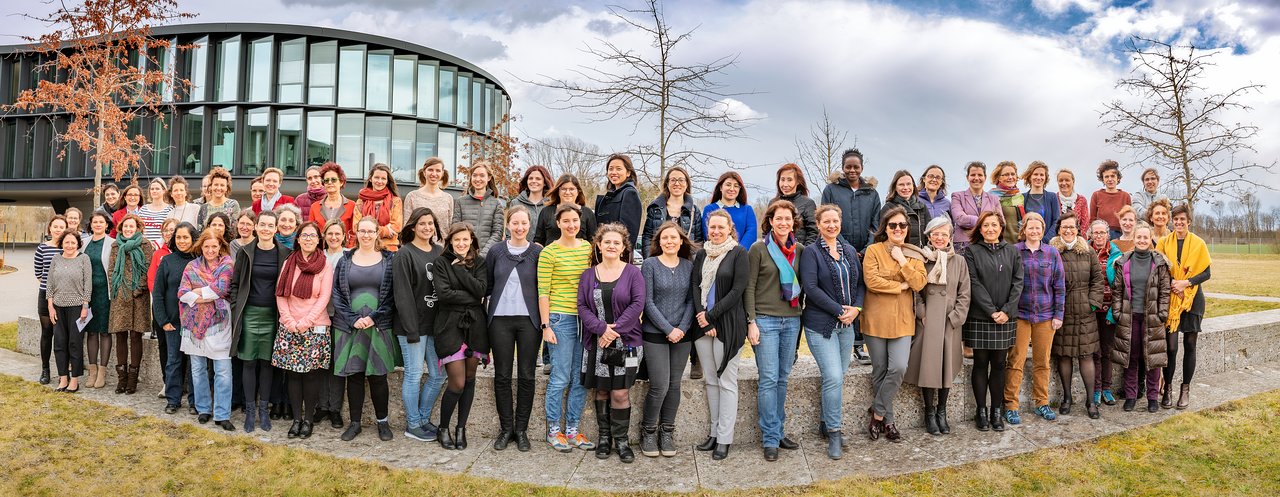Diversity, Equity and Inclusion at ESO
ESO’s commitment to diversity, equity and inclusion
The mission of ESO is to design, build and operate the most advanced observatories on the ground, and to foster international collaboration for astronomy. This work leads to invaluable scientific and technological progress and contributes to social sustainability, in line with the United Nations’ (UN’s) Sustainable Development Goals. ESO is committed to fostering diversity, equity and inclusion, one of ESO’s core values as reflected in the organisation’s diversity, equity and inclusion statement:
At ESO, we value our diverse workforce. We respect the unique experience and perspectives of our staff and believe in the contribution of each individual to jointly accomplish ESO’s mission.
We reaffirm ESO’s commitment to creating a diverse and inclusive work environment that is safe, professional and of mutual trust where everyone is treated with courtesy and respect. We also recognise that individuals may need different levels of support to make their opportunities the same as others’.
Consequently, we are committed to treating individuals equitably and respectfully regardless of their gender, age, disability, religion or beliefs, ethnicity, nationality or national origin, appearance, sexual orientation and family situation. We strive to create true equity of opportunities and therefore commit to give various groups the resources they need to succeed.
| Definitions | ||
| Diversity is defined as the presence of differences within a given setting. This includes gender identity, age, ability, ethnicity, religion, nationality, communities, sexual orientation, place of practice, and practice type. We acknowledge the undoubted and proven benefit of having a diverse workforce that brings a spectrum of perspectives in our teams and in decision-making structures. | Equity means fair treatment in access and opportunity for all employees. We recognise that advantages and barriers exist and that, as a result, everyone does not start from the same place. Equity is a process that begins by acknowledging that an unequal starting place exists and works to correct and address the imbalance. Equity ensures that all people can grow, contribute, and develop, regardless of their identity. | Inclusion refers to the intentional effort to value people’s differences and enable everyone to perform to their full performance no matter their background, identity or circumstances. We aim at creating an inclusive working environment, that is one in which everyone feels that they belong, and that their contribution matters. |
A formal description of how the principles of diversity, equity and inclusion have been and are being established at ESO, and how they are and will continue to be monitored for their effectiveness is described in the ESO Diversity, Equity and Inclusion Plan. This page highlights some of ESO’s activities and strategic actions described there.
Promoting gender diversity
Gender equality, and in particular the advancement of women in science, has been a priority at ESO for more than 15 years. The topic of equity and inclusion are more recent areas of focus.
At ESO, promoting gender diversity was kickstarted by a 2005-2006 project called “Status of women at ESO”, aimed at investigating the gender distribution in the organisation. The results showed that female employees accounted for only 18% of the total staff members. These results were disappointing but served as the basis for future action. The current gender distribution at ESO shows female staff representing 26.4% of the overall headcount by the end of 2021, but ESO aims to increase this further, as described further down.
In addition to promoting gender balance inside ESO, the organisation has taken measures to promote diversity outside, participating in initiatives to address inequality in astronomy and inspiring young children to engage in in science, technology, engineering and maths (STEM) fields.
For example, ESO participates in initiatives to advance gender equality, diversity and inclusion through its collaboration with UN Women in Chile, where its observatories are located. In 2020, a memorandum of understanding was signed between ESO and UN Women with the goal of promoting science and engineering careers among young girls in Chile, as well as to create training opportunities for disadvantaged women who have struggled to finish their formal education. Under the framework of this agreement, a training programme is ongoing at ESO’s Paranal Observatory, in the Northern Chile’s Antofagasta region, to give women technical training in coating techniques for telescopes that are used in professional astronomical observatories. Additionally, several colleagues from ESO in Chile have joined a mentoring project, LIQCAU, led by the Universities of Antofagasta, focused at increasing the participation of women in STEM fields.
ESO also collaborates with other organisations to promote gender diversity, including:
- GENERA (Gender Equality Network in Physics in the European Research Area), fostering global collaboration in gender equality policy in physics between research organisations, associations and consortia;
- Society of Women Engineers;
- Working Group of Women in Astronomy at the International Astronomical Union (IAU).
ESO initiatives for diversity, equity and inclusion
To cultivate an enabling work culture where all people can work successfully irrespective of their sex, ethnicity, religion, age, gender, gender identity, sexual orientation, disability or any other status/identity, ESO takes a data-driven and goal-oriented approach to diversity, equity and inclusion activities, which are supported by dedicated resources.
ESO’s Diversity & Inclusion Committee and the Human Resources Department collect and monitor relevant data across the organisation, based on which they develop goals, policies and good practices pertaining to all aspects of diversity, equity and inclusion and guide their implementation across the organisation. Since 2023, this work is complemented by a dedicated Sustainability and Diversity Officer, who provides leadership and support in sustainability actions, as inspired by the UN Sustainable Development Goals. Finally, ESO has a dedicated Ombudsperson, who provides different services to improve ESO’s capacity to handle conflicts and issues effectively.
Strategic priorities and actions
ESO has chosen three high-level strategic priorities to address as part of its plan to improve equality overall, namely diversity, equity and inclusion.
Strategic priority: diversity
ESO recruits primarily from its 16 Member States and partner countries but is not precluded from hiring outside those countries. As such, the workforce is culturally diverse with employees coming from dozens of different nations who bring different backgrounds, different ways of thinking and solving problems. ESO is welcoming to staff and visitors from different cultures, nationalities and genders, and develops an awareness and understanding of differences to increase acceptance and inclusion. This diversity has been key to the success of the organisation. To further promote diversity, ESO is committed to:
- Increasing the overall number of women in the organisation, with the aim of reaching 30% representation by 2030;
- Increasing the percentage of women in technical, engineering, and decision-making positions;
- Scaling-up its efforts to support other diversity dimensions (people with disabilities, age, LGBTQ+, ethnicity, etc.), the first step being to understand the needs of under-represented groups and making sure that the workplace and policies are inclusive towards them.
To work towards its goals, ESO implements the following actions:
- Attracting diverse job candidates by using language in its job ads to promote applications from diverse audiences and participating in career fairs that focus on underrepresented groups. In the future, ESO will ensure every part of the hiring process is accessible to everyone, including candidates with disabilities, from the job posting to the interview process;
- Ensuring selection boards are diverse to reduce bias during interviews and training selection board members to recognise such biases;
- Providing hiring managers with more in-depth training on diversity and inclusion awareness, as well as on unconscious bias;
- Considering diversity aspects in recruitment by short-listing candidates who meet the essential requirements as defined in the job ad and who bring added value to the diversity in the team;
- Giving incentives to contractors providing technical services at the observatories to increase the diversity of their workforce.
Strategic priority: equity
ESO is committed to understanding and incrementally closing potential equity gaps in salaries, advancement and career progression disparities affecting some groups of individuals (e.g. women).
To achieve this, ESO will:
- Gather, analyse and produce data on starting pay and career advancement based on gender (and, in the future, other dimensions);
- Develop leadership and mentoring programmes for women. Mentoring programmes offer opportunities for managers belonging to under-represented groups to meet with senior leaders who may share their background;
- Evaluate the current practices to identify talents and develop ways to support diverse staff and in particular women towards higher level positions.
Strategic priority: inclusion
ESO is committed to:
- Creating a welcoming environment and enabling staff to work more effectively and safely through more advanced work-life balance policies and a focus on creating a psychologically safe environment;
- Understanding the needs of staff with disabilities, including hidden disabilities, and providing reasonable accommodation;
- Be welcoming to staff and visitors from different cultures and nationalities, and further promoting the awareness and understanding of cultural differences among ESO staff to increase acceptance and inclusion.
To achieve this, ESO implements guidelines and policies to promote a safe work environment for all employees. This includes:
- Ensuring comprehensive onboarding for all staff and providing the services of an ombudsperson;
- Having a respectful workplace policy in place to support a working environment free of all kinds of inappropriate behaviour including harassment and discrimination, in addition to promoting psychological safety;
- Promoting work-life balance, such as having family-friendly policies in place and allowing for flexible work arrangements.
In the future, ESO will implement measures to also promote an inclusive environment for people with disabilities, including hidden disabilities, such as:
- Organise awareness talks at ESO’s sites in Germany and in Chile;
- Identify, appoint and train a group of Disability Contact Persons that will provide informal and confidential advice to staff with disabilities and provide recommendations for reasonable accommodation of their needs;
- Undertake an assessment of the physical accessibility of the buildings at all ESO sites.
To ensure these initiatives and actions work to promote a more diverse, inclusive and equitable organisation, ESO will continue to report to its Council annually on progress.



